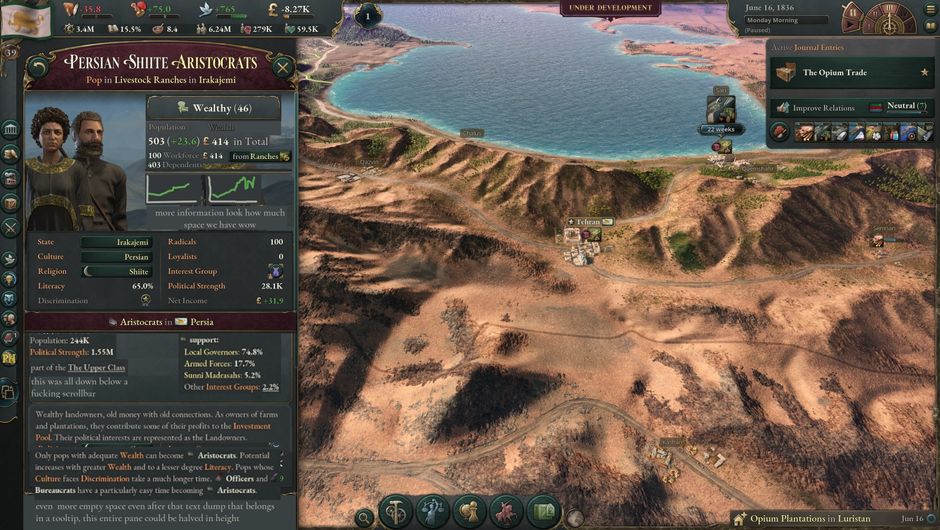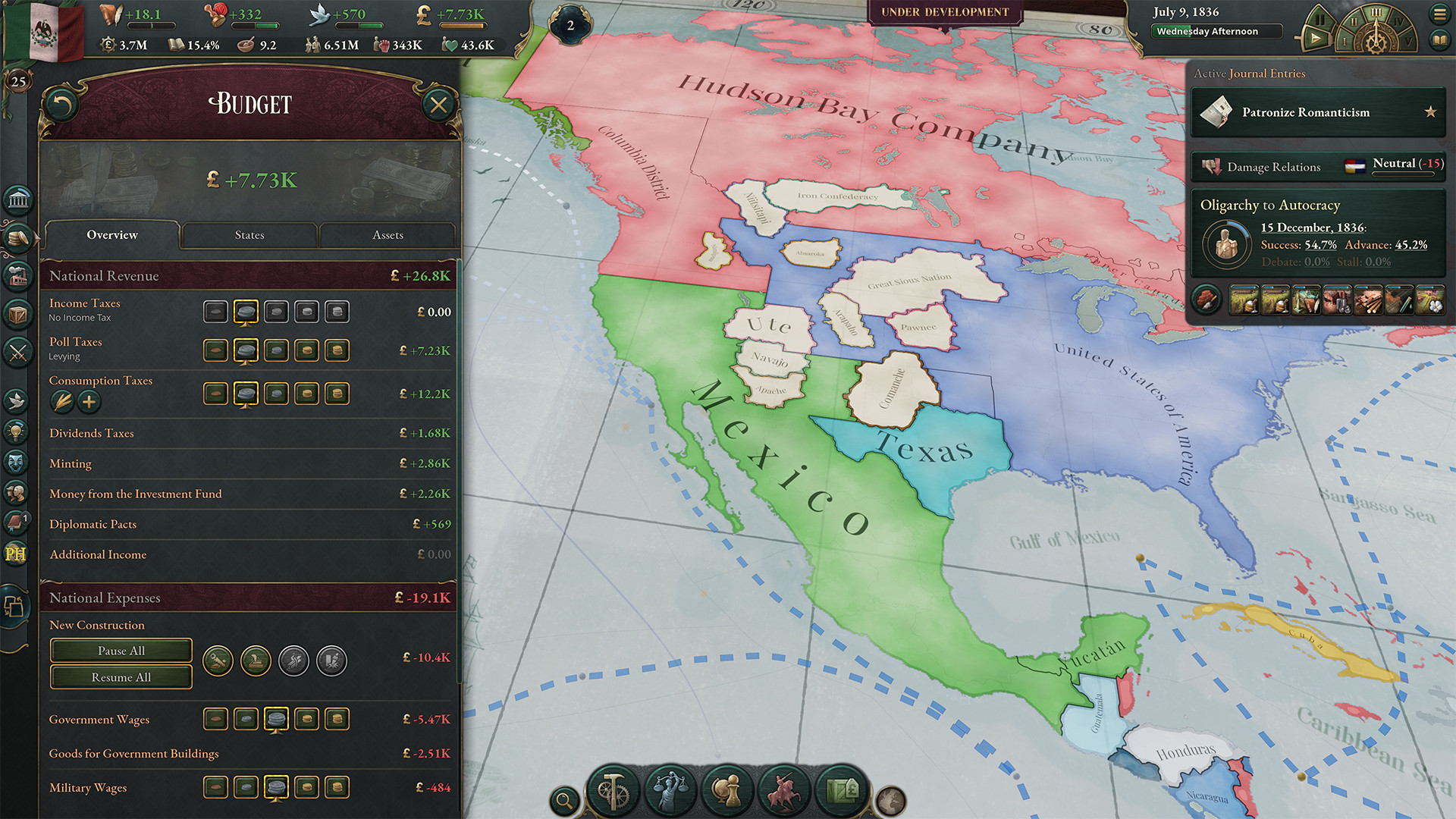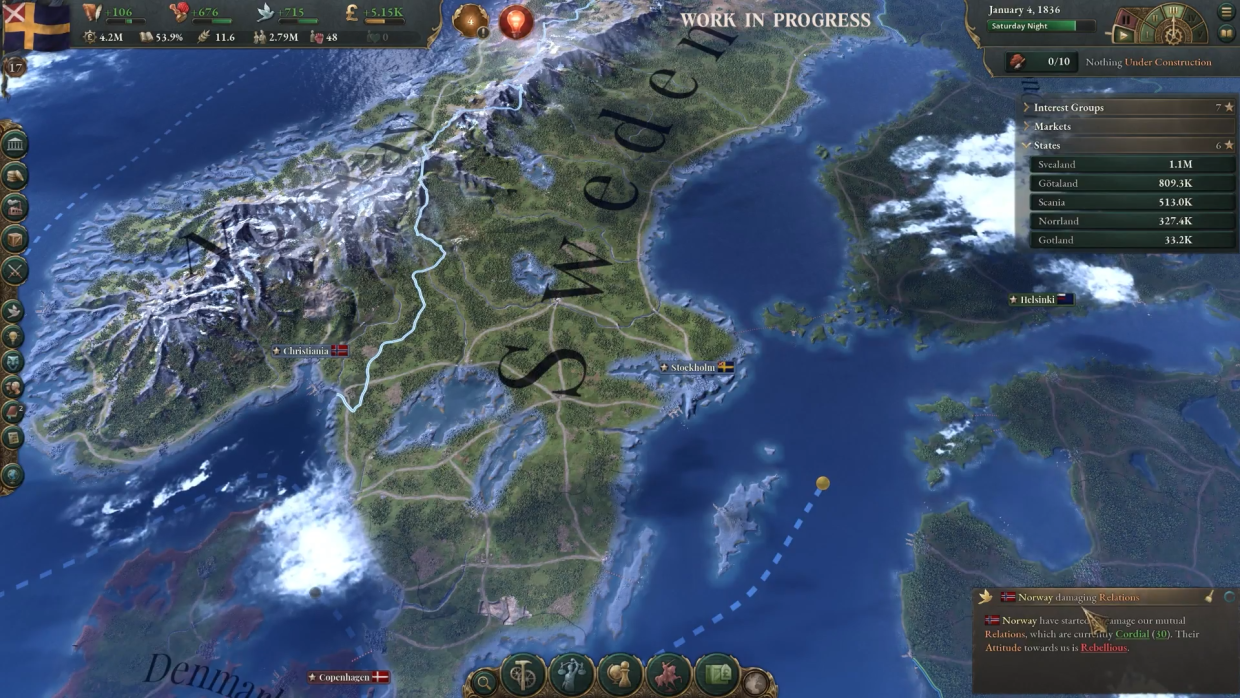Victoria 3 is a complicated strategy game with many different mechanisms and keeps you busy for hours. This is a sequel to the 2010 game Victoria II, and covers world history for a hundred years from 1836. Players are able to choose from a hundred countries on what they want to control as well. In this guide, we will take you through the process of how to establish a colony in Victoria 3.
Victoria 3: How to Establish a Colony
Colonization is possible in Victoria 3 if you have Colonial Affairs activated. Through this feature, you will be able to take over other countries by force as the dictator. However, you will need to keep a close eye on them and the overseas expenses required to keep them. If not done correctly, this could cause an uprising among the people of that nation, which could potentially hamper your economic and political power to a great extent.
Read Next: Victoria 3: How to Deal with Radicals
If you want to colonize some nations, you should ensure that they are decentralized first. You can check this by looking up the decentralized nations which is available in a list, announced at the beginning of the game. You can establish colonies only in those countries, and once you have all of them, you will not be able to increase the size of your colonies.
To begin establishing a colony, you can click on the corresponding Establish Colony button which is present at the bottom of the game screen, under Diplomatic Lens. This will prompt a menu to you where you can select the nation you want to colonize, from a list.
After you have chosen the country that you want to colonize, click on it to begin colonizing. Once you have declared your interest, you can start the process. Immediately, you will have one new province. The process of colonization will begin, where you will soon take over all the provinces of the nation that you have chosen. The rate of colonization depends on your colonial growth. You can increase this by raising the level of your Colonial Affairs Institution.










